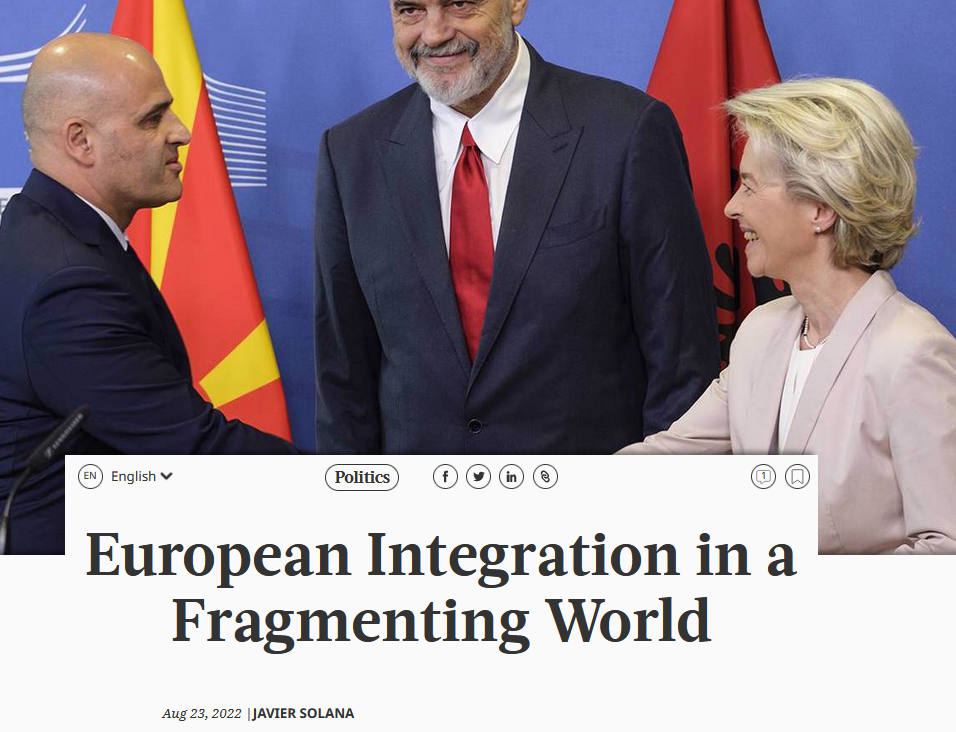MONDAY
1. THEORY
International Integration Theories
2. ANALYTICS
European Integration in a Fragmenting World

WEDNESDAY
3. STATISTICS

4. CURRENT ISSUES
FLASHCARDS
5. ANALYTICAL COMMENTARY
VOCABULARY & GRAMMAR
KEY TERMS
| interconnect | be interwoven or linked closely together |
| alter | to make different, modify |
| accommodate | to adapt, adjust |
| non state actors | organizations and/or individuals not directed or funded by any government |
| sovereignty | the right to have absolute and unlimited power, either legal or political, within the territory of a state |
| policy-making | the activity of deciding on new policies, especially by a government or political party |
| governance | the act of exercising authority |
| interdependence | a reciprocal relation between interdependent entities |
| participation | the act of becoming involved in the activities of a group |
| subsidiarity | the principle of devolving decisions to the lowest practical level |
FOCUS WORDS
FLASHCARDS
SYNONYMS
| advance | способствовать; приближать, ускорять; продвигаться |
| pursue | преследовать, продолжать, заниматься; искать, добиваться |
| attend to | обращать внимание; уделять внимание |
| asset | имущество; средства; активы; ценное качество, вклад |
| priority | приоритет |
| undergo | подвергаться, испытывать, переносить |
| foster | поощрять, воспитывать, благоприятствовать |
| trigger | инициировать, вызывать, дать начало |
| tangible | материальный, ощутимый, осязаемый |
| feasible | возможный, осуществимый, выполнимый, вероятный |
PREPOSITIONS
- success in
- threat to
- prospect of
- tension over
- regardless of
- paradox for
- renege on
- belonging to
- option for
- opportunities for
- approach to
- account for
- basis for
- contribute to
- attend to
WORDS FOR REPORT
- the key findings
- across 22 countries
- viewed favorably/ views of …. are generally positive
- hold/ have a favorable view
- a majority has unfavorable views of
- a median of 46%/ a 57% majority of
- roughly three-quarters of
- seven-in-ten/ eight-in-ten
- compared with a median of/ In comparison,/ Likewise,
- inclined to say
- declined by roughly 10 percentage points
- substantial shares in many countries surveyed
GRAMMAR PATTERNS
In a world that is tearing itself apart, the European Union should make trust in the European project a top strategic priority.
Despite a succession of severe convulsions, European integration has recently undergone a historic acceleration.
Since the COVID-19 pandemic hit Europe two and a half years ago, practically all of the EU’s decisions have sought to strengthen member states’ political integration.
If the country meets the bloc’s entry requirements, there is no reason why it should not be admitted.
Promises of eventual membership and the long negotiations that precede it will harm the Union if they generate frustration among candidate countries’ governments and citizens.
Without the EU’s 2004 enlargement to Eastern Europe, the bloc would not be the commercial and regulatory power it is today.
